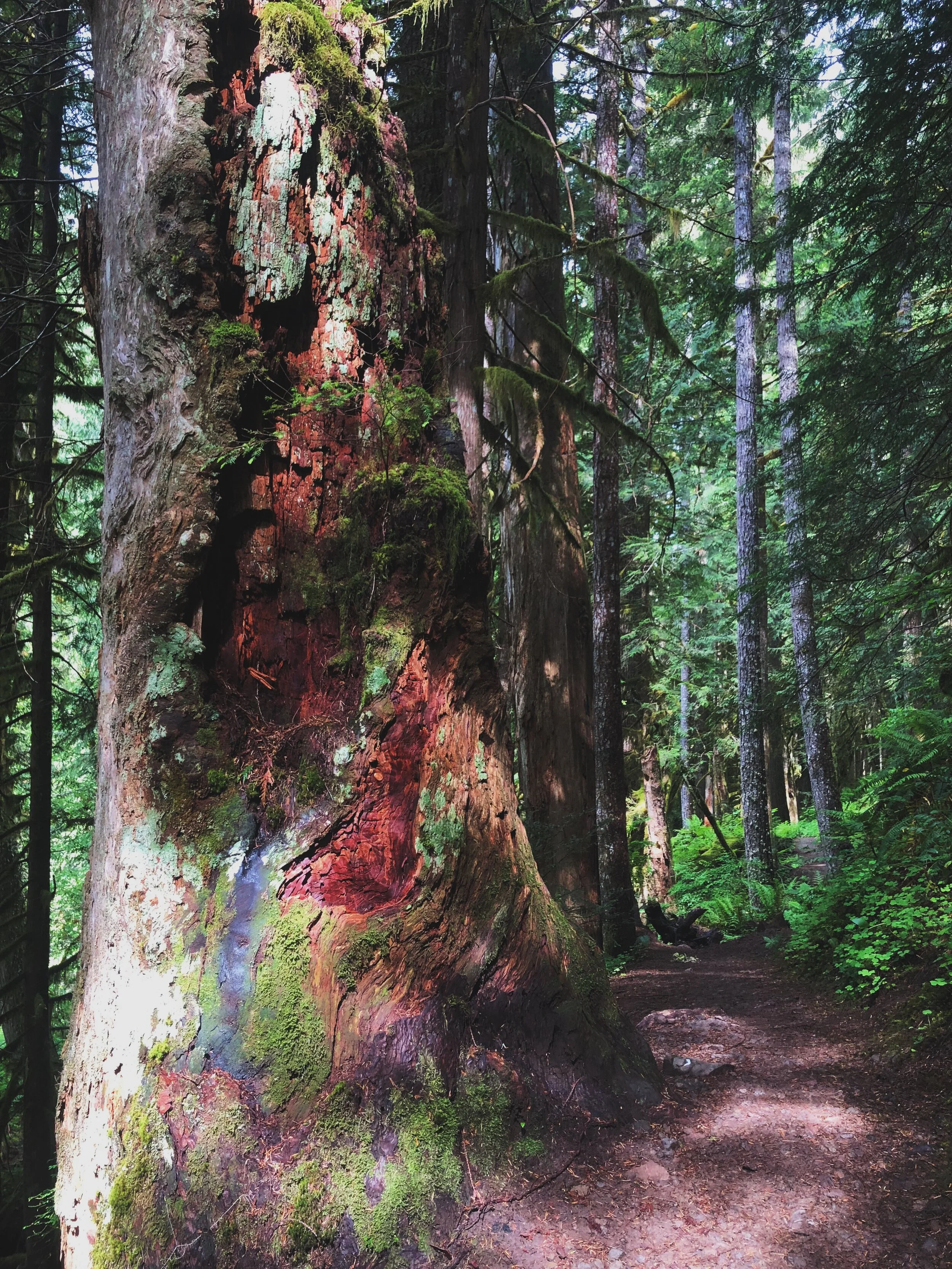July, Second Week :: 2021
/Red dragonfly, misty morning.
That’s my alternative title for this post based off an ancient Japanese calendar I read about recently. In this way of time-keeping, the year was divided into 24 seasons, and each of these was further divided 3 times into a total of 72 seasons, each lasting 4-5 days. These miniature seasons were given lovely, poetic names based on what was happening in nature. (e.g.“Warm winds blow”, “Hawks learn to fly” )
There are so many reasons I love this way of season-keeping, mostly because it requires attendance to the subtle shifts and nuances of change as we move through the year, but also for the invitation to grace the passing days with poetry.
Right now we are in a bit of an upheaval at Fernwood. Outside, the house is being painted and the decks repaired. Inside we are preparing to downsize and shift our living quarters so a soon-to-be married daughter and son-in-law can share our home for awhile. All my curated corners for sitting and thinking are upended, there is always a contractor (agreeable and helpful as they are) just where I want to be, and there’s no end to the amount of decluttering and reorganizing waiting for me. How necessary then to have a place where poetry can enter and soothe.
Red dragonfly on wild sweet pea.
Misty morning, thirsty ground.
House waits with folded hands.
…
Yesterday I carted one of the plastic adirondack chairs out to the center of the yard, out of the path of the contractors, just on the edge of the walnut tree shade so I could write. I remember Sylvia V. Linsteadt saying in an old blog post that she tried to spend one day every week out on the land “tracing the songlines of that beloved wild place, so that my work remains infused with its many voices.” I’m determined to put myself in connection with the land and all that it speaks to me every day, even if that happens in fragments and requires listening for the squabble of bluejays over the “sounds of the 80’s and 90’s” coming from a contractor’s radio. In my classes this last spring, I realized I don’t really need more formulas and instruction on basic writing. What I need instead is to loosen something inside and explore outside my domesticated self. Practices like writing outside by hand not only help me listen to the wild places, but also help me access parts of myself that have been shuttered so I can create freely (something that didn’t feel possible until I left religion behind, but that’s a post for another day.)
After I finished writing yesterday, I spent an hour re-watching a talk by Ray Bradbury and making plans to write a short story every week as he suggested. He assured that you can’t write 52 terrible stories, so I hope I’ll be able to share some of those in the Story Room throughout the year. And, of course, I’m still working on the novel as well! In fact, I’m going to wrap this up and get back to work on it.
I hope you will find some peace, poetry, and freedom on your own path this week, no matter what is going on around you.
Gathered:
~ Ryan Holiday’s videos on being an active reader and making time for reading.
(FYI, I’m reading Heather Cox Richardson’s How the South Won the Civil War: Oligarchy, Democracy and the Continuing Fight for the Soul of America and Graham Joyce’s The Limits of Enchantment right now.)
~ This funny, smart essay by Caitlin Flanagan: You Really Need to Quit Twitter
“Surely Joan Didion has confronted her share of aggravations (cucumber slices not adhering to tea sandwiches; Lynn Nesbit calling during NewsHour; latest Celine sunnies too big for tiny, exquisite face). But would she ever take to Twitter to inscribe these frustrations onto the ticker tape of the infinite? Of course not. She would either shape them into imperishable personal essays or allow them to float past her and return to the place from which they came.”
(I just marked two years without social media accounts. I echo everything Flanagan (and her family) has to say.)
~ Bob Dylan:
“A library is an arsenal of liberty.”
A bientot mes amis.













